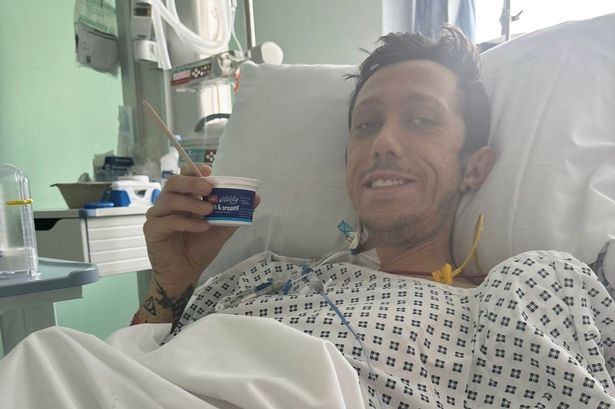Ben Jeszka, 32, says strangers, potential employers and even people close to him have made assumptions about his health Last year, Ben underwent a liver transplant (Image: Supplied)
Last year, Ben underwent a liver transplant (Image: Supplied)
A Leicester man who underwent a life-saving liver transplant has spoken out about being judged and labelled an addict – despite his condition being caused by a rare disease. Ben Jeszka, 32, says strangers, potential employers and even people close to him have made assumptions about his health, with many believing he caused his own illness through addiction.
Ben was diagnosed in January 2022 with primary sclerosing cholangitis (PSC) – a rare autoimmune liver disease that causes scarring of the bile ducts, which are tiny canals that connect some of the organs in the digestive system.
Just over two years later, in April 2024, Ben underwent a liver transplant that saved his life. Ben has been labelled a “liar,” “abuser,” and a “waste of space”, and believes the judgment has contributed to the breakdown of close relationships and repeated job rejections after explaining his three-year treatment gap.
“People think I’m an addict,” Ben said. “They hear ‘liver disease’ and automatically assume I’ve done it to myself. It’s not true – but it still makes me question myself. Did I make a mistake somewhere? Could I have avoided this? Even though I know it’s autoimmune, the judgement gets in your head.
“I’d never struggled to get a job before,” he added. “Now I can’t shake the feeling it’s because of my illness. If I could say one thing to the people who judge me, it’s this: take the time to learn before you speak.
 Last year, Ben underwent a liver transplant (Image: Supplied)
Last year, Ben underwent a liver transplant (Image: Supplied)
“You might think you’re making an offhand comment, but the wrong words could be the thing that pushes someone over the edge. Liver disease isn’t always caused by alcohol or drug use. Even if it is, those people still deserve help, not hate.”
Ben’s experience has been claimed to be part of a wider pattern revealed by a Chiesi UK and Ireland survey of 1,148 people living with chronic or rare conditions, where 70 percent reported feeling judged, stigmatised or blamed based on their health. The research, carried out by the pharmaceutical company, found that people in the East Midlands are most likely to have experienced health bias compared to other regions.
 He was wrongly labelled an ‘addict’ and ‘liar’ – leaving him isolated and struggling mentally(Image: Supplied)
He was wrongly labelled an ‘addict’ and ‘liar’ – leaving him isolated and struggling mentally(Image: Supplied)
The survey found that in the East Midlands, 56 per cent of respondents have avoided seeking medical help due to fear of being judged. Additionally, 74 percent have isolated themselves due to fear of judgment, and over 56 percent have hidden their condition from colleagues or their employer.

